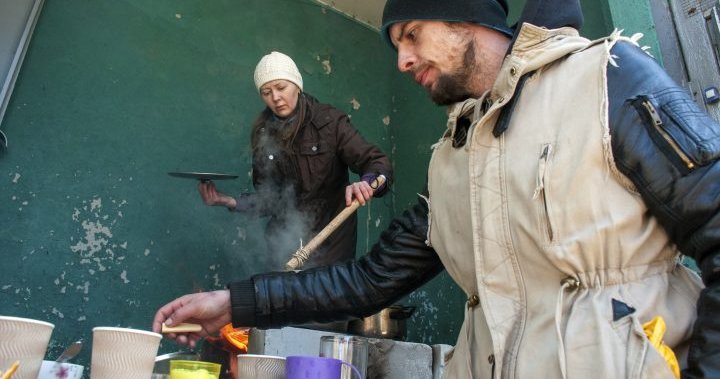
Global impact of Ukraine war worst since World War II: U.N. food chief
Global News
David Beasley, executive director of the U.N. World Food Program, told the U.N. Security Council that already high food prices are skyrocketing.
The U.N. food chief warned Tuesday the war in Ukraine has created “a catastrophe on top of a catastrophe” and will have a global impact “beyond anything we’ve seen since World War II” because many of the Ukrainian farmers who produce a significant amount of the world’s wheat are now fighting Russians.
David Beasley, executive director of the U.N. World Food Program, told the U.N. Security Council that already high food prices are skyrocketing.
His agency was feeding 125 million people around the world before Russia’s invasion of Ukraine on Feb. 24, and Beasley said it has had to start cutting their rations because of rising food, fuel and shipping costs. He pointed to war-torn Yemen where 8 million people just had their food allotment cut 50%, “and now we’re looking at going to zero rations.”
The war in Ukraine is turning “the breadbasket of the world to breadlines” for millions of its people, while devastating countries like Egypt that normally gets 85% of its grain from Ukraine and Lebanon that got 81% in 2020, Beasley said.
Ukraine and Russia produce 30% of the world’s wheat supply, 20% of its corn and 75%-80% of the sunflower seed oil. The World Food Program buys 50% of its grain from Ukraine, he said.
The war is going to increase the agency’s monthly expenses by $71 million because of rising food, fuel and shipping costs, he said. That will total $850 million for a year and mean that there will be “4 million less people we’ll be able to reach.”
Beasley said the World Food Program is reaching about a million people inside Ukraine with food now, and will reach 2.5 million over the next four weeks, 4 million by the end of May and hopefully 6 million by the end of June. The price tag is about $500 million for the first three months and “we are short by about $300 million so we’re going to need to step up,” he said.
Beasley warned that focusing on Ukraine should not lead the international community to neglect of Africa, especially the Sahel, and the Middle East, because “otherwise, you’ll have massive migration” coming to all parts of Europe.





